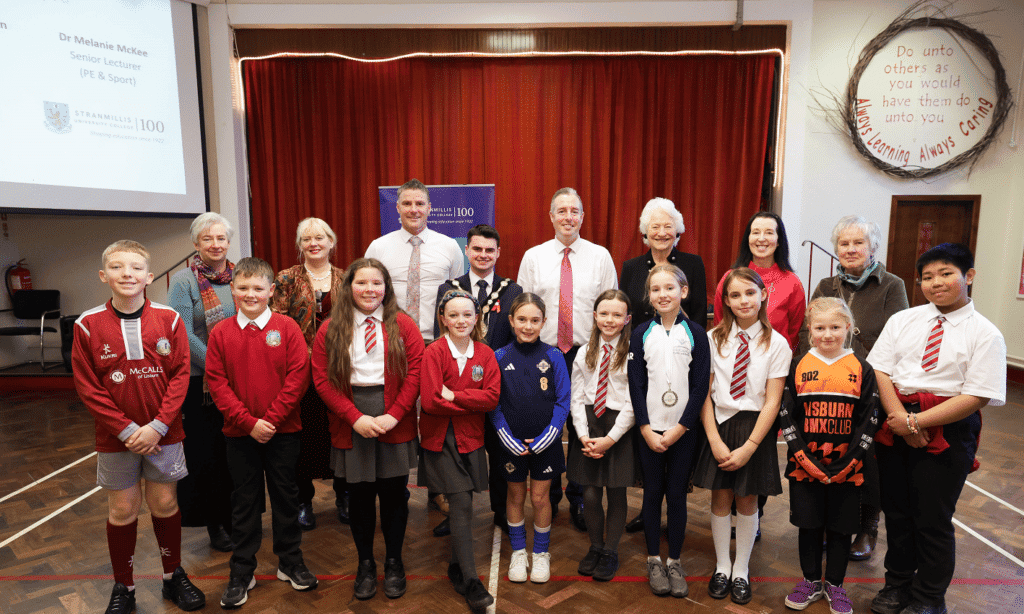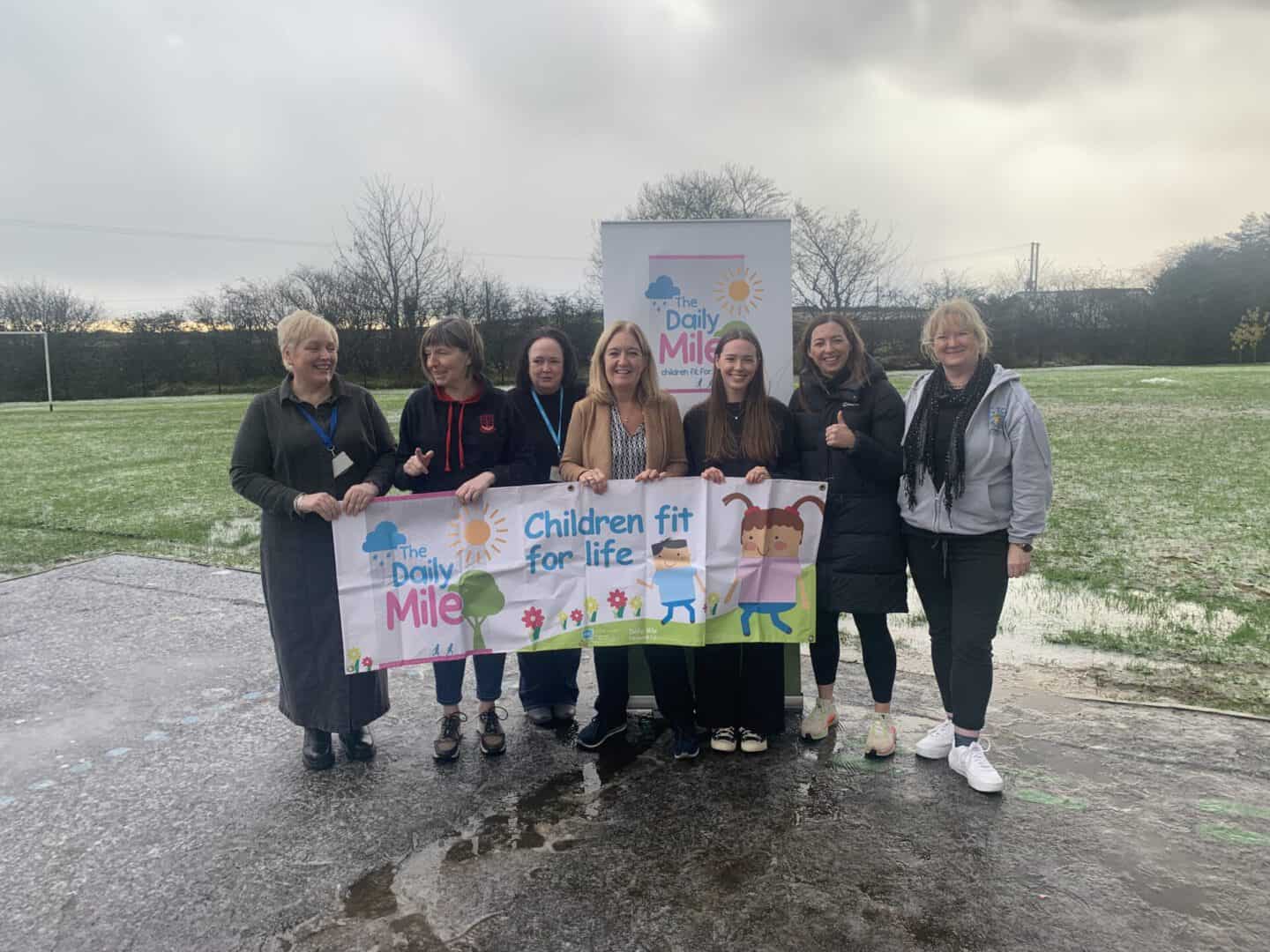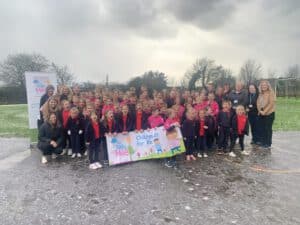Queen’s University Belfast and Stranmillis University College have officially renewed their long-standing academic partnership, reaffirming a collaboration that is set to strengthen the education ecosystem in Northern Ireland.
Stranmillis, which delivers a range of education focused degree programmes, has had an academic relationship with Queen’s for over 100 years, and has been providing taught courses leading to degrees and other awards of Queen’s since it became a Recognised College of the University in 1968.
The updated Partnership Agreement between the two institutions strengthens and enhances their shared strategic vision centred on excellence—whether through delivering a comprehensive student experience, world-class teaching and research, or making a positive impact on society. This partnership will foster increased collaboration in both academic and extracurricular activities, enhancing Northern Ireland’s educational environment as a whole.
150 attendees from across the two institutions, students, education partners, community leaders and political leaders attended a special event at Stranmillis today (Monday 3 March), to celebrate the renewed partnership.
Queen’s President and Vice Chancellor, Professor Sir Ian Greer, said:
“Today we celebrate and reflect on the strong and enduring partnership between Queen’s University Belfast and Stranmillis University College—a partnership built on shared values, a commitment to excellence, and a vision for education that reaches beyond our two institutions.
“Ultimately, this partnership is a reflection of a spirit of collaboration—a belief that by working together, we can achieve more for our students, our communities, and the future of education. As we look ahead, we remain committed to deepening this collaboration, finding new ways to support our students and staff, and ensuring that excellence, innovation, and partnership remain the cornerstones of our relationship.”
Stranmillis CEO and Principal, Professor Jonathan Heggarty, said:
We are excited to be signing a new Partnership Agreement with Queen’s University Belfast today. For over 100 years, our two institutions have worked side by side, collaborating on and contributing to education locally and globally; building strong reputations for excellence in teaching and learning, innovative research, quality student support, and nurturing future leaders. This new agreement renews our shared commitment to excellence and will enabls us to leverage our strengths to address today’s challenges and seize tomorrow’s opportunities. A key focus for both institutions is student success. Through joint research, new study programs, and outstanding student services, this agreement ensures our students will benefit from our strengthened partnership.
Successful partnerships create space for each partner to contribute their unique strengths toward common goals. This agreement will help Stranmillis and Queen’s advance our shared vision for the future of education in Northern Ireland, focusing on academic excellence, fostering an environment of inclusion and opportunity, and ensuring our students have an outstanding learning experience.
Speaking about the importance of the partnership to students, Joanna McCombe, a Year 2 Post-primary student at Stranmillis, said:
“Studying at Stranmillis offers me the best of both worlds. Being affiliated with Queen’s means I benefit from world-class resources and amenities, including the McClay Library, state-of-the-art sports facilities at Queen’s PEC, and a vibrant student life filled with clubs, societies, and social activities. Plus, I’m earning a degree from a prestigious Russell Group university which is globally recognised and opens doors to a world of opportunities.
“At the same time, Stranmillis provides a small, tight-knit community where everyone, students and staff, knows and supports each other. We share a genuine passion and commitment to improving the lives and futures of children and young people through education.”


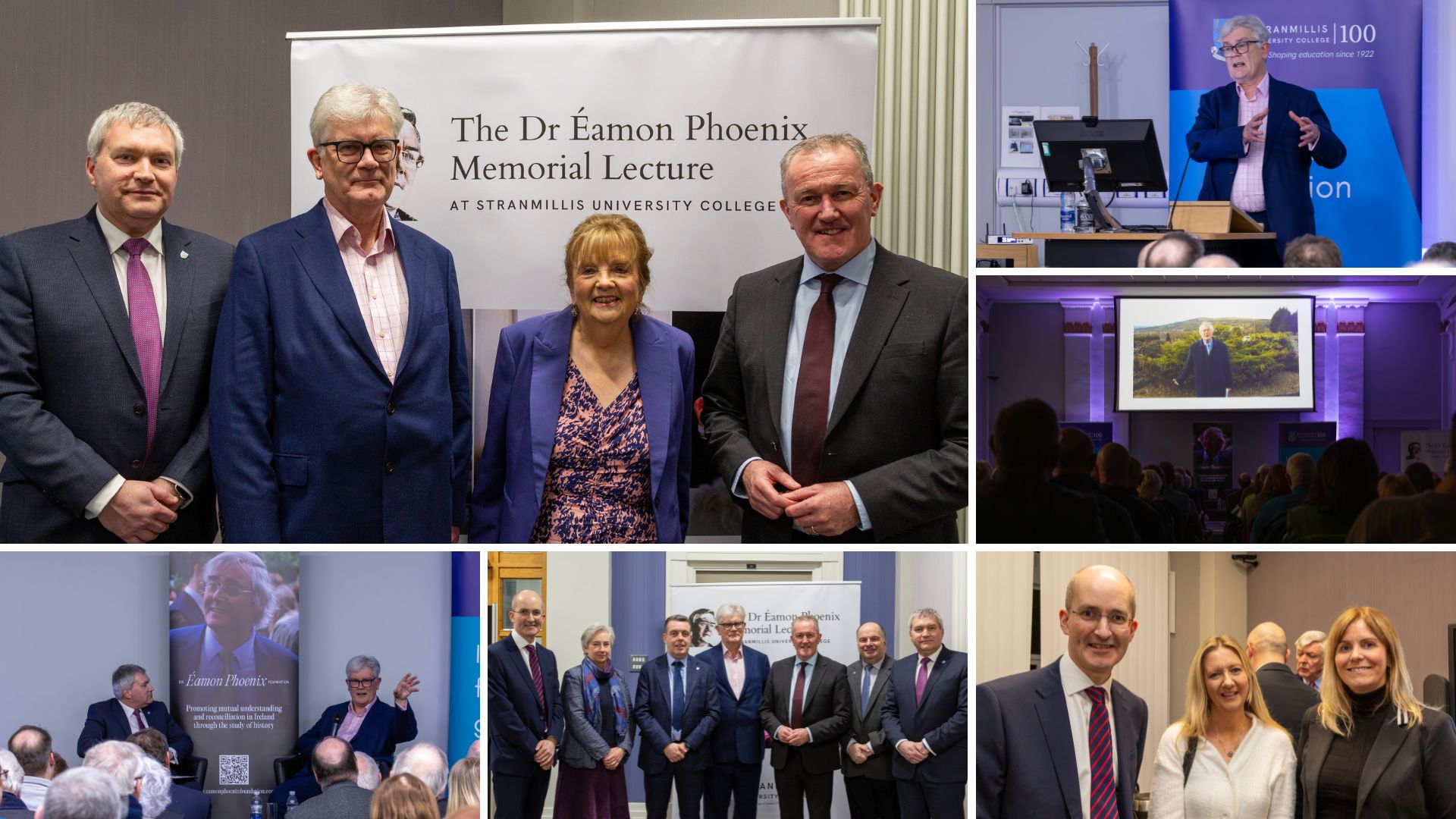





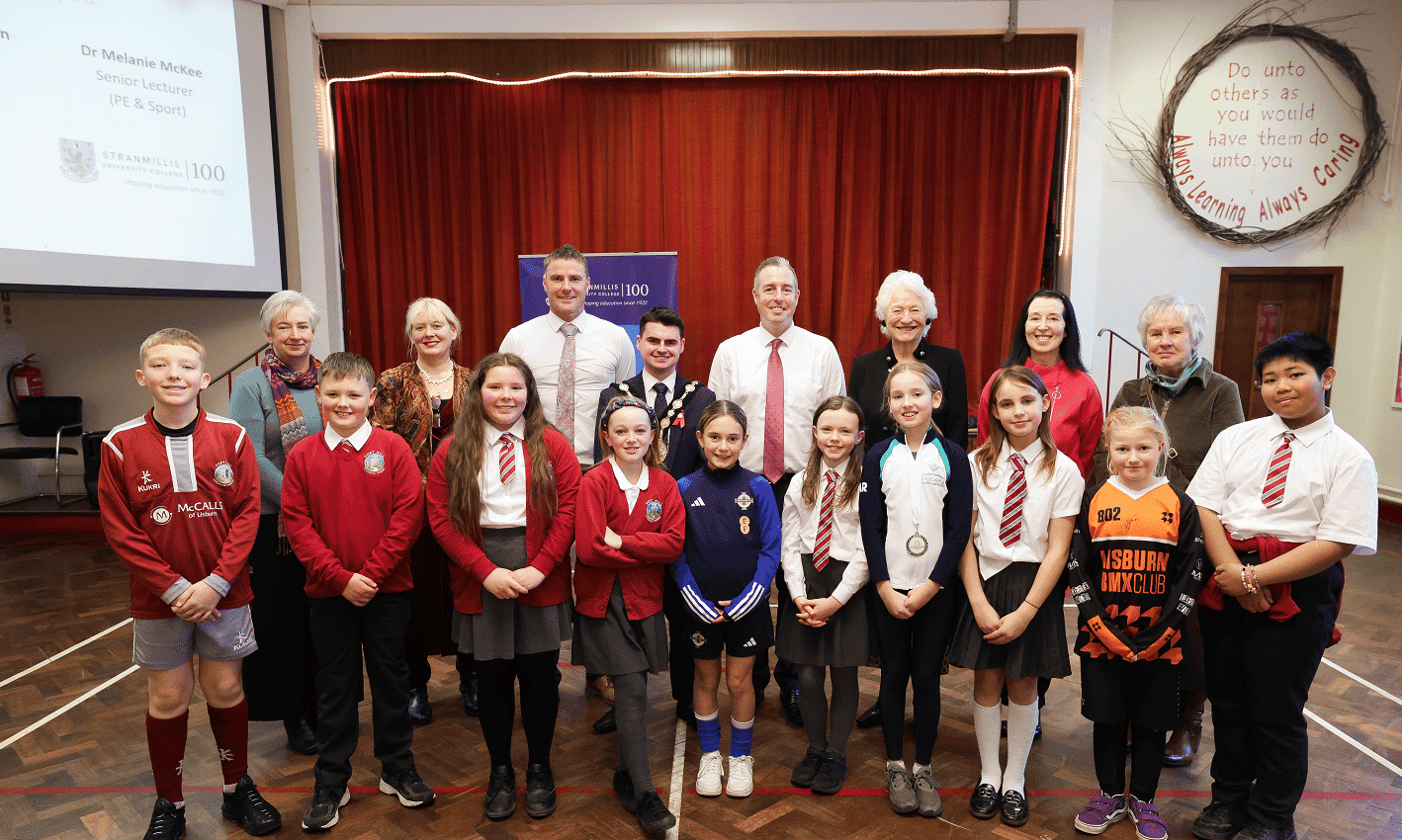
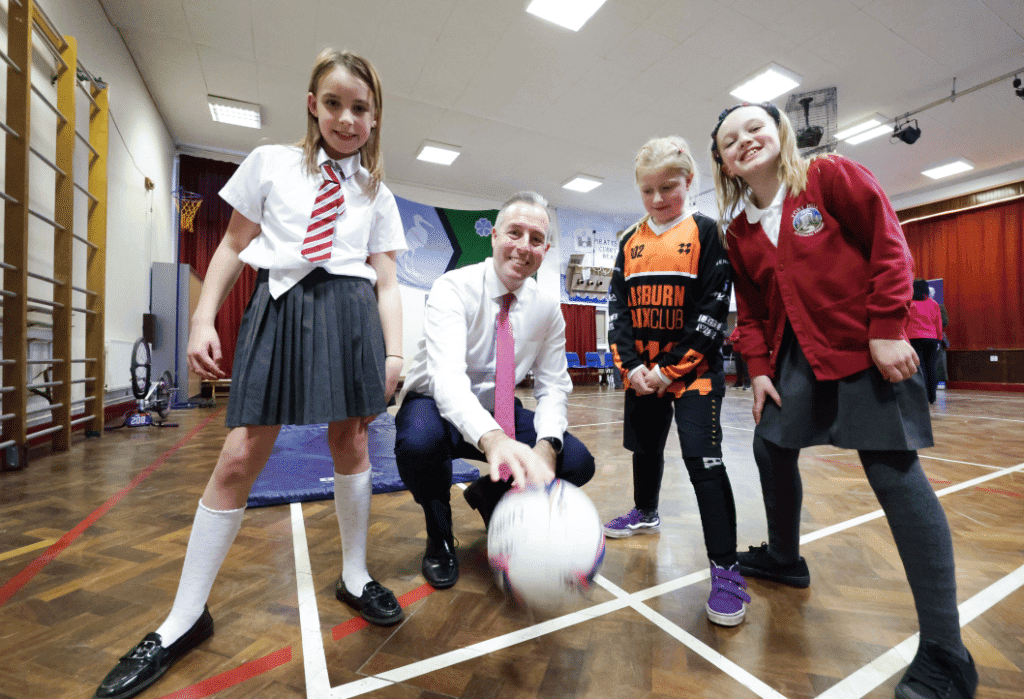 The Active Schools model designed by Dr Melanie McKee, a senior lecturer from Stranmillis University College, is being piloted in collaboration with Simon Patterson, the principal of Fort Hill Integrated Primary School. The aim of the Active Schools pilot is to assist with advocating for a strategic and sustainable, cross-departmental investment in an Active Schools programme for schools in Northern Ireland. An Active School values, promotes and develops every child’s physical literacy by creating a physically educated and physically active school community. Hence, it will provide multiple opportunities to increase physical activity and develop physical literacy, for example, through active travel to/from school, active breaktimes, active play, active classrooms, PE, after-school clubs and active home learning.
The Active Schools model designed by Dr Melanie McKee, a senior lecturer from Stranmillis University College, is being piloted in collaboration with Simon Patterson, the principal of Fort Hill Integrated Primary School. The aim of the Active Schools pilot is to assist with advocating for a strategic and sustainable, cross-departmental investment in an Active Schools programme for schools in Northern Ireland. An Active School values, promotes and develops every child’s physical literacy by creating a physically educated and physically active school community. Hence, it will provide multiple opportunities to increase physical activity and develop physical literacy, for example, through active travel to/from school, active breaktimes, active play, active classrooms, PE, after-school clubs and active home learning.